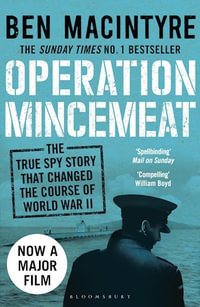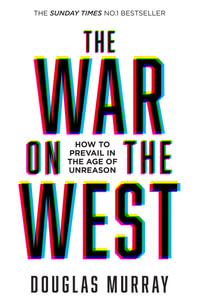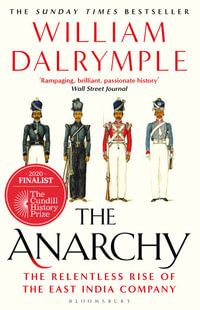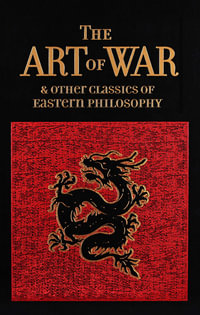
Battle for the Ruhr
The German Army's Final Defeat in the West
By: Derek S. Zumbro
Hardcover | 1 October 2006
At a Glance
Hardcover
$97.47
Aims to ship in 7 to 10 business days
When will this arrive by?
Enter delivery postcode to estimate
Industry Reviews
"A masterful account of the final collapse of the German forces along the Rhine front in the early months of 1945. Zumbro deliberately sets out to tell the story of the campaign from the German perspective. . . . Zumbro truly succeeds in creating an account of not just the military experience but the human one as well. The balance is perfectly struck. An essential contribution to the literature on the war."--Journal of Military History
"Battle for the Ruhr is a fascinating book providing fresh insight that many may find disturbing, but is a story that has value and is a welcome addition to the genre associated with Army Group B and the final days of the war. Zumbro has clearly fulfilled his stated intent of providing insight into a little-discussed aspect of the war: the way in which the defeated enemy experienced and viewed the U.S. soldier as a conqueror, while recounting a compelling chronicle of human experience."--Parameters
"This volume is an important contribution to our understanding of the end of the Second World War and provides a more complete picture of the battle for the Ruhr than has previously been offered. ...While Zumbro's account succeeds admirably in meeting its goals of presenting the German defeat from the perspective of the defeated, just as importantly, it serves as a model for reconstructing a major battle through examination of its smaller engagements."--H-Net Reviews
"The most significant contribution of this book to the history of the war and Germany is the gripping account it provides of what the war, in its final throes, meant for both 'ordinary soldiers' and 'ordinary citizens' of the defeated. . . . The real strength of Zumbro's study exists in telling the story from a new perspective--that of the defeated German soldiers and civilians caught in the final horrors of defeat, devastation, and death. . . . The book is well written, sufficiently even for a general audience to understand not only the military maneuvering, but also the plight of the many people whose experiences unfold so vividly on its pages."--Central European History
"The writing of the history of World War II is changing. . . . The current, long overdue trend is . . . the examination of events from the squad and platoon level up to the generals, field marshals, and the politicians who direct them. One of the best examples of this 'bottom-up history' is this substantial new contribution by Derek Zumbro. . . . Exciting history. . . . Zumbro's descriptions of the bombings often rise to the level of literature. . . . For the story of the battle for the Ruhr Valley, Zumbro's new book is unrivaled."--German Studies Review
"It is the German people who are front and centre here, ordinary townsfolk and villagers, for the most part, rather than movers and shakers of the military or Nazi elite. The result is a portrait of the collapse of the Third Reich that is quite unlike anything currently available in English. . . . A readable, even compelling book. . . . One of the best books on the Second World War to appear in years. It challenges virtually all of our preconceived notions about the war and demolishes its share of them."--The International History Review
"Zumbro conveys the experience of urban combat from the German perspective while still making sense of the larger struggle. From the nightly terrors inflicted by aerial bombardment to the dogged struggle amid ruin-strewn cities, he captures well the essence of war at its most concrete--the daily struggle to survive and the almost routine agonies of existence amid the spreading chaos. Confusion, uncertainty, vicious resistance, revenge killings, casual violence on both sides--all these things, and even acts of charity and humanity, characterized the final days of the war."--Stephen G. Fritz, author of Frontsoldaten: The German Soldier in World War II
"Portrays the full range of experiences that accompanied the Third Reich's death throes and adds a valuable and often fascinating bottom-up perspective to battle narratives from the Allied side."--Geoffrey P. Megargee, author of Inside Hitler's High Command
ISBN: 9780700614905
ISBN-10: 0700614907
Series: Modern War Studies
Published: 1st October 2006
Format: Hardcover
Language: English
Number of Pages: 456
Audience: Professional and Scholarly
Publisher: UNIV PR OF KANSAS
Country of Publication: US
Dimensions (cm): 23.52 x 16.2 x 3.89
Weight (kg): 0.81
Shipping
| Standard Shipping | Express Shipping | |
|---|---|---|
| Metro postcodes: | $9.99 | $14.95 |
| Regional postcodes: | $9.99 | $14.95 |
| Rural postcodes: | $9.99 | $14.95 |
How to return your order
At Booktopia, we offer hassle-free returns in accordance with our returns policy. If you wish to return an item, please get in touch with Booktopia Customer Care.
Additional postage charges may be applicable.
Defective items
If there is a problem with any of the items received for your order then the Booktopia Customer Care team is ready to assist you.
For more info please visit our Help Centre.























